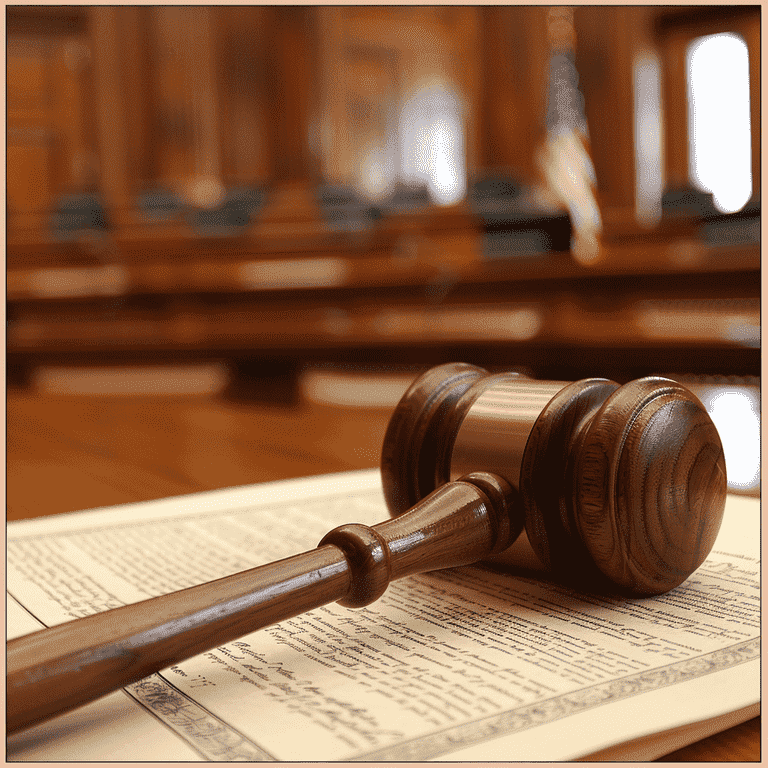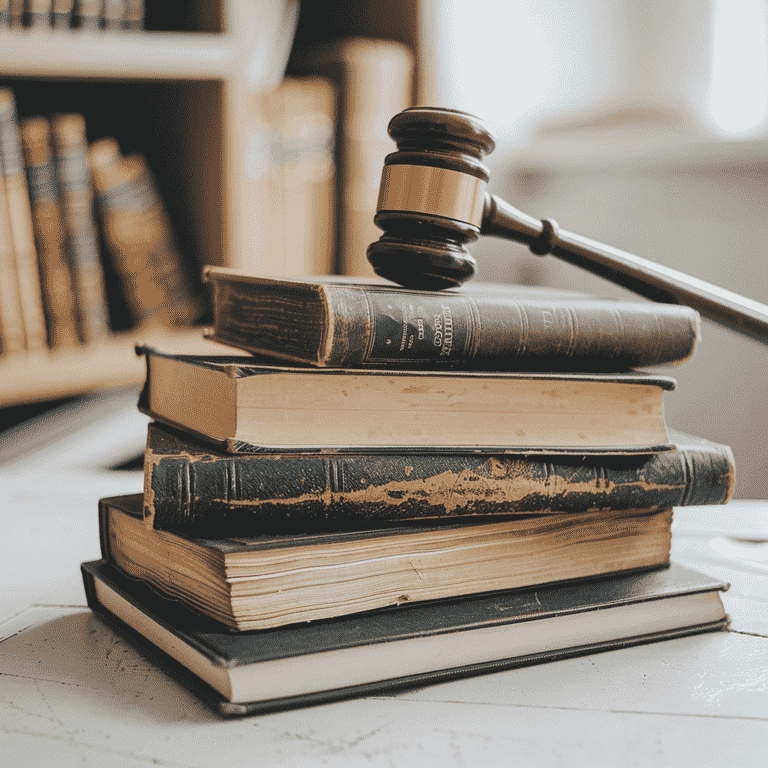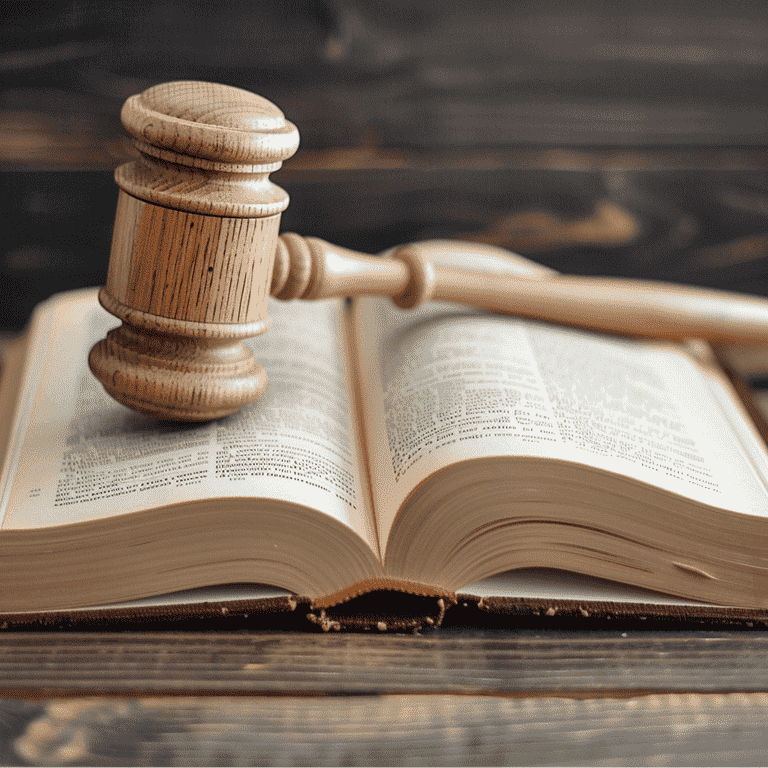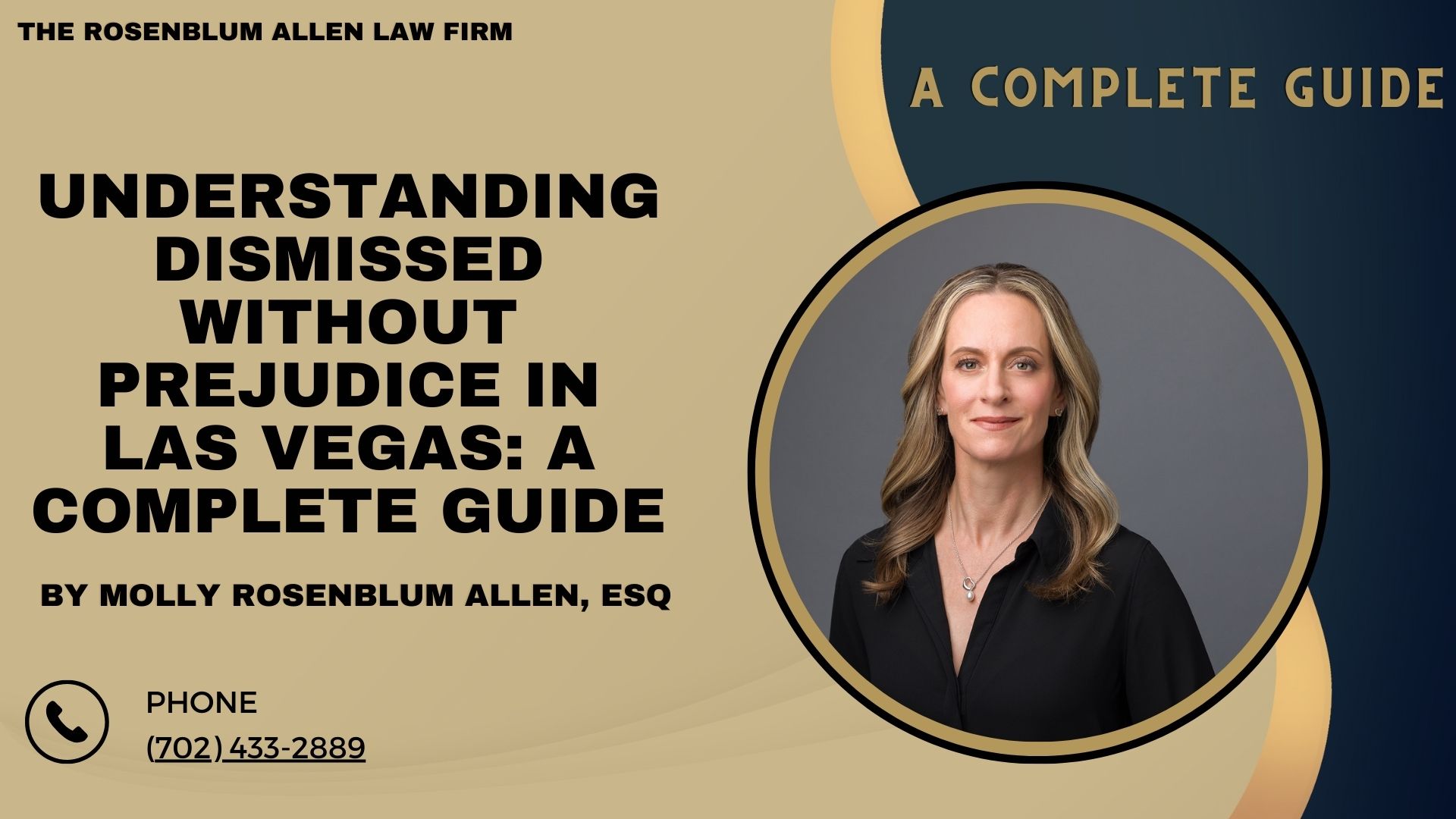Navigating the legal system can feel like wandering through a maze. This is especially true in a vibrant city like Las Vegas, where the stakes always seem higher. When facing legal challenges, you may encounter terms like “dismissed without prejudice.” These terms may leave you scratching your head. What does it mean for your case, future, and peace of mind? This guide aims to explain the term and process. It will ensure you’re well-informed and ready to take the next steps confidently.
Overview of Legal Dismissals
In the legal world, a dismissal is a court order to end a case. Imagine a judge saying, “This case won’t proceed further in my courtroom.” But, the devil is in the details—or, in this case, in the phrases “without prejudice” and “with prejudice.”
Importance of the Term “Without Prejudice” in Legal Proceedings
The term “without prejudice” is a legal lifeline. The case is closed now, but we have not locked the door. You or the prosecutor can reopen the case under certain conditions. It’s like getting a second chance to fight again. Or, to fix mistakes that might have hurt your case the first time.
What Does “Dismissed Without Prejudice” Mean?
Understanding legal jargon is crucial to navigating your case effectively. Let’s break down what “dismissed without prejudice” entails.
Definition and Legal Implications
“Dismissed without prejudice” is a legal term. A case closes, but not permanently. The signal indicates that someone can reopen or refile the case. New evidence can cause this to happen or correcting procedural errors can lead to it. It’s not an acquittal or a declaration of innocence; it’s more of a pause button.
Comparison with “Dismissed With Prejudice”
But, “dismissed with prejudice” means the case is over for good. There’s no coming back. It’s a final verdict, a closed door. This distinction is crucial because it affects your strategy moving forward.

The Legal Process in Las Vegas Courts
Las Vegas courts, like the city itself, are bustling and complex. Understanding the court process here is the first step in navigating your case.
How Cases Are Filed and Processed in Las Vegas
In Las Vegas, cases begin when a complaint or charge is filed. From there, the case can take many paths through the legal system. These paths are influenced by evidence, legal arguments, and rules.
The Role of the Defense Attorney in Las Vegas
A defense attorney in Las Vegas is your guide through this legal labyrinth. They’re not just your advocate but your strategist. They navigate the nuances of Nevada law to protect your rights and get the best outcome.

Reasons for Dismissal Without Prejudice
Several factors can lead to a case being dismissed without prejudice. Understanding these can provide insights into the legal strategy and potential next steps.
Insufficient Evidence
Sometimes, the evidence isn’t strong enough to support the case. This doesn’t mean the evidence can’t be strengthened or new evidence can’t come to light.
Procedural Errors
The legal process is a dance of precise steps. A misstep by the prosecution or court can lead to a dismissal, offering a chance to rectify these errors.
Agreement Between Parties
Occasionally, both sides find a middle ground, leading to a dismissal. This could be through talks, mediation, or a realization. Continuing isn’t in anyone’s best interest.
The legal system in Las Vegas is complex and nuanced. The journey through it is hard. Understanding the meaning of “dismissed without prejudice” is crucial. It will help you navigate your case with confidence and clarity. With this foundation. We’ll delve deeper into the impacts. We’ll cover the role of your defense attorney and how to prepare for what comes next.

Impact of Dismissal Without Prejudice
When a case is dismissed without prejudice, it’s like hitting the pause button rather than the stop button on your legal journey. Let’s explore what this means for you and your future.
On the Defendant’s Record
Having a case dismissed without prejudice might sound like a victory, and in many ways, it is. However, it’s important to remember that this dismissal doesn’t erase the case from your record. It’s akin to having a shadow that fades but doesn’t completely disappear until specific steps are taken, such as sealing or expunging your record.
Potential for Refiling the Case
The prosecutor’s ability to refile the case is the most significant impact of a dismissal without prejudice. It’s like a cloud looming on the horizon; the storm has passed for now, but there’s always a chance it could return. This potential for refiling keeps the door open for future legal battles over the same issue.
Time Limits for Refiling in Nevada
In Nevada, there are specific time frames, known as statutes of limitations, within which a case can be refiled. These time limits vary depending on the nature of the case. Understanding these deadlines is crucial because the case can no longer be reopened once they pass, turning your reprieve into a permanent one.

Navigating the Dismissal Process
Navigating the dismissal process requires a map, a compass, and a knowledgeable guide. Here’s how to traverse this path with confidence.
Steps to Achieve a Dismissal Without Prejudice
Gather and Analyze Evidence: Collect all available evidence that supports your case. This might include documents, photos, or witness statements.
Identify Procedural Errors: Look for any mistakes in filing or handling the case. These could be your golden ticket to a dismissal.
Negotiate with the Prosecution: Sometimes, discussions with the prosecutor can lead to an agreement that results in dismissal. It’s all about finding common ground.
Importance of Legal Representation
Having a defense attorney by your side is not just helpful; it’s essential. They’re your advocate, your strategist, and your navigator through the complex legal system of Las Vegas. An experienced attorney can spot opportunities for dismissal that you might miss and negotiate more effectively on your behalf.

The Role of a Defense Attorney
A defense attorney wears many hats, each crucial to your case’s success. Here’s a closer look at their role in achieving a dismissal without prejudice.
Assessing the Case for Potential Dismissal
Your attorney will first review the details of your case to identify any weaknesses in the prosecution’s arguments or errors in the legal process. This assessment is the foundation of your defense strategy.
Negotiating With Prosecutors and Judges
A skilled defense attorney knows how to speak the language of the court. They can negotiate with prosecutors and persuade judges, aiming to secure a dismissal or a more favorable outcome.
Ensuring Proper Legal Procedures Are Followed
From filing the proper motions at the correct times to challenging improper evidence, your attorney protects your rights. Their expertise can be the difference between a dismissal and a conviction.

Understanding Your Rights
In the legal arena, knowledge is power. Understanding your rights is crucial to defending them effectively.
The Right to a Fair Trial
This is the cornerstone of the American legal system. You have the right to a fair trial, which includes the right to present evidence, cross-examine witnesses, and have a competent defense.
The Right to Legal Representation
You have the right to legal representation. You can hire a private attorney or the court can appoint a public defender for you. This ensures you have an advocate in your corner, fighting for your best interests.
The Right to Appeal a Decision
If the court dismisses a case with prejudice or convicts you, you still retain your rights. The right to appeal allows you to challenge the court’s decision. You seek a different outcome on higher legal grounds.

Preparing for Possible Refiling
Even after a dismissal without prejudice, the journey might not be over. Here’s how to brace yourself for possibly reopening your case.
How to Prepare if the Case Is Refiled
Stay in Contact with Your Attorney: Keep the lines of communication open. Your attorney can provide updates and guide you through the following steps.
Keep Documentation Organized: Maintain a file of all documents related to your case. This includes court documents, evidence, and correspondence.
Be Ready to Act Quickly: Time will be of the essence if the case is refiled. Being prepared can make all the difference.
The Importance of Ongoing Legal Support
Having ongoing legal support means you’re never walking alone on this journey. Your attorney can give valuable guidance and support. This is true if the case is refiled or if you’re moving on to expunge your record.
The legal system’s path is hard. This is especially true in a city as lively as Las Vegas. It is full of uncertainty and complexity. But, “dismissed without prejudice” has some nuances. Understanding them and the roles and strategies can clarify the process. It can also improve your chances of a better outcome.

Breaking It All Down
Avoiding a case dismissed without prejudice in Las Vegas requires deep legal knowledge. It also needs a plan and the right legal help. This guide covered the key parts of such firings. It covered the initial definition and implications. It also explained the roles of defense attorneys and how to prepare for the chance of refiling. Remember, a dismissal without prejudice leaves the door open for future legal challenges. It also allows for strategic planning and reaching a better outcome.

Frequently Asked Questions
What are some common misconceptions about dismissal without prejudice?
Some mistakenly believe that a dismissal without prejudice means a declaration of innocence or a permanent clearance of their record. However, the case can be reopened under certain conditions, and the record still exists until further legal steps are taken to seal or expunge it.
Can a case dismissed without prejudice affect future employment or background checks?
Yes, since a dismissal without prejudice doesn’t remove the case from your record, it may appear in background checks. However, the impact on employment can vary based on the employer’s policies and the nature of the job.
How long does the prosecution have to refile a case dismissed without prejudice in Nevada?
The timeframe for refiling a case depends on the type of case and the specific statutes of limitations in Nevada. Generally, statutes range from a few years for misdemeanors to longer for felonies. Seeking specific legal advice is recommended to understand the exact limitations of your case.
Does a dismissal without prejudice impact my ability to file a lawsuit for wrongful arrest or prosecution?
No, a dismissal without prejudice does not prevent you from filing a lawsuit for wrongful arrest or prosecution. However, the details of the dismissal and the circumstances of your case could affect the viability and strategy of the lawsuit.
Can the reason for the dismissal without prejudice be challenged or changed?
The grounds for dismissal are decided by the judge or agreed upon by the defense and prosecution. Once a case is dismissed without prejudice, the specific reason cannot be changed. However, if the case is refiled, the parties can address new facts or legal arguments.
How can I clear my record after a case is dismissed without prejudice?
To clear your record, you may need to file a petition for expungement or sealing, depending on Nevada’s laws and your case specifics. This process typically involves meeting certain criteria and potentially attending a court hearing.
Is there a difference in handling dismissals without prejudice in federal vs. state courts?
Yes, federal and state courts may have different rules and procedures for dismissals, including dismissals without prejudice. Additionally, statutes of limitations and procedures for refiling, expungement, or record sealing can vary between federal and state jurisdictions.
What should I do if I receive notice that a dismissed case is being refiled?
If you receive notice that a previously dismissed case is being refiled, it’s crucial to contact your defense attorney immediately. They can provide legal advice specific to your situation, help you understand the issues involved, and prepare a defense for the refiled case.
How can I determine if a case dismissed without prejudice has been refiled?
Staying in touch with your attorney is key. They can inform you of any changes to your case status and whether it has been refiled. Additionally, you may receive official notice from the court or prosecutor’s office if the case is refiled against you.
Does a dismissal without prejudice leave a permanent mark on my legal record?
While a dismissal without prejudice is part of your legal record, it doesn’t necessarily leave a permanent mark on your life. Depending on your case and state laws, you may be able to clear your record through steps like expungement.

Glossary
Dismissed Without Prejudice: A legal decision to close a case that allows for the possibility of reopening or refiling in the future if new evidence emerges or procedural errors are corrected.
Dismissed With Prejudice: A final legal decision that permanently closes a case, preventing it from being filed again.
Defendant: The individual or entity against whom a legal case is brought in court.
Prosecution: The party responsible for bringing a case against the defendant in a criminal trial, typically represented by a prosecutor.
Statutes of Limitations: Laws that set the maximum time after an event within which legal proceedings may be initiated.
Expungement: The legal process of sealing or erasing an arrest or conviction record from public view under certain conditions.
Sealing: A legal process that restricts the visibility of a specific record from the general public, though it may still be accessible to particular government or related entities.
Procedural Errors: Mistakes or errors in the way legal procedures are carried out can affect the trial’s fairness or the validity of the case outcome.
Evidence: Information or materials presented in court to support or refute an argument or claim in a legal case. This can include witness testimony, documents, photographs, or physical items.
Negotiation: A discussion aimed at reaching an agreement, where parties in a legal case may discuss terms to settle disputes or resolve the case without a trial.
Appeal: A request made to a higher court to review and change a lower court’s decision. Appeals can be based on arguments that the trial was conducted unfairly or that legal errors impacted the verdict.
Fair Trial: A legal principle that ensures an individual’s right to a just and equitable trial process, including the right to be heard, the right to counsel, and the right to a neutral and unbiased tribunal.
Legal Representation: The act of having a lawyer or attorney provide legal advice and speak on behalf of an individual in legal proceedings.
Background Check: A review of an individual’s criminal, commercial, and (sometimes) financial records typically conducted by employers or organizations to verify a person’s history.
Wrongful Arrest: The act of detaining or arresting an individual without proper legal justification or violating their rights.
Civil Lawsuit: A legal dispute between two or more parties where the plaintiff seeks compensation or another form of legal remedy from the defendant, distinct from criminal proceedings.

Additional Resources for You
To further assist you in navigating the complexities of the legal system and understanding your rights and options, our lead attorney, Molly Rosenblum Allen, Esq., has created a suite of additional resources. These materials are designed to provide in-depth insights into various legal concepts and scenarios that might be relevant to your situation. Here’s a brief overview of these resources, available on our website, to help you in your time of need:
Double Jeopardy: Explore the legal doctrine that prevents an individual from being tried twice for the same offense, outlining its implications and exceptions. Learn More
Hung Jury: Understand what happens when a jury cannot reach a unanimous decision, and how it affects the outcome of a trial. Learn More
Circumstantial Evidence: Dive into the role and importance of circumstantial evidence in the courtroom and how it can impact the verdict of a case. Learn More
Indicted Vs Charged: Clarify the difference between being indicted and being charged with a crime, and what each means for the accused. Learn More
Difference Between Jail And Prison: Learn about the distinct differences between jail and prison in terms of purpose, duration of stay, and conditions. Learn More
What Are Miranda Rights: A crucial resource explaining the rights of individuals under police custody and the importance of these rights in protecting personal freedoms. Learn More
How To Check If You Have An Outstanding Warrant: Step-by-step guide on identifying if there are any outstanding warrants against you and the actions you can take. Learn More
What To Look For In A Criminal Defense Lawyer: Essential tips and criteria to consider when hiring a criminal defense lawyer to ensure the best representation. Learn More
Possible Ways To Reduce A Felony Charge: Strategies and legal maneuvers that might be employed to reduce the severity of a felony charge. Learn More
Should You Accept A Plea Bargain: Insights into the pros and cons of accepting a plea bargain, helping you make an informed decision. Learn More
These resources have been meticulously prepared to guide you through your legal challenges, offering clarity and support when you need it most.

Outside Resources for You
American Bar Association (ABA): An extensive resource offering information on various legal topics, including defense rights and legal representation. Visit ABA
National Association of Criminal Defense Lawyers (NACDL): Provides resources and advocacy for criminal defense lawyers and individuals facing criminal charges. Visit NACDL
FindLaw: A comprehensive resource for legal information, including articles on criminal law and the legal process. Visit FindLaw
Justia: Offers a wide range of legal resources, including case law, statutes, and articles on criminal defense strategies. Visit Justia
Avvo: Provides legal advice, lawyer directories, and forums for asking legal questions on criminal defense and other legal areas. Visit Avvo
Nolo: Offers detailed articles, FAQs, and legal guides on criminal law, rights, and how to navigate the legal system effectively. Visit Nolo
National Legal Aid & Defender Association (NLADA): Dedicated to providing legal representation resources for those unable to afford an attorney, with a focus on criminal defense. Visit NLADA

A Special Message from Our Lead Attorney, Molly Rosenblum Allen, Esq

Dear Reader,
Thank you for exploring our resources. They are about “Understanding Dismissed Without Prejudice in Las Vegas: A Complete Guide.” We hope you found the information insightful. It should empower you as you navigate your legal journey.
At The Rosenblum Allen Law Firm, we know the complexities of the legal system well. We are here to offer our support and expertise. If you have questions or need more help, I invite you to schedule a free consultation with our team.
Please call us at (702) 433-2889 to arrange your appointment. We are here to help you. We offer dedicated legal advice and representation. It tailors to your unique circumstances.
Warm regards,
Molly Rosenblum Allen, Esq.
The Rosenblum Allen Law Firm




